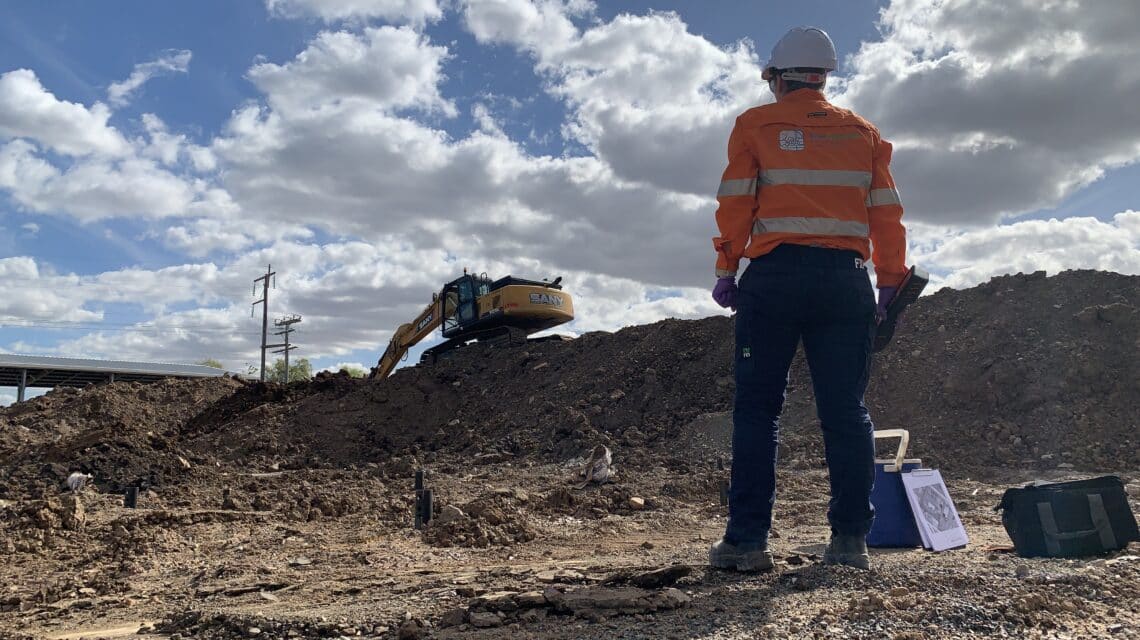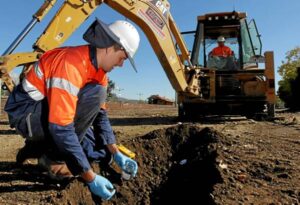Environmental Engineers and Their Role in Contamination Control
Environmental engineers are key to controlling contamination and protecting our environment. Discover how environmental engineers safeguard our future by combating contamination! In Australia, where environmental protection is paramount, the expertise of environmental engineers becomes even more significant.
Key Responsibilities of Environmental Engineers
- Hazardous Waste Management: Environmental engineers specialize in identifying, treating, and safely disposing of hazardous wastes. Their expertise is crucial in preventing toxic substances from harming the environment and human health.
- Environmental Impact Assessments (EIA): Conducting comprehensive EIAs is a primary responsibility. These assessments help understand the potential environmental impacts of proposed projects and develop strategies to mitigate them.
- Water and Wastewater Management: They design and oversee the operation of water and wastewater treatment plants. This ensures a sustainable and safe water supply, crucial for both ecological balance and public health.
- Pollution Control Technologies: Environmental engineers develop and implement advanced pollution control technologies. These systems are essential in reducing the negative impacts of industrial and urban activities on the environment.
- Sustainable Development Strategies: They play a significant role in promoting sustainable development. This involves creating solutions that balance environmental conservation with economic and social needs.
- Drainage System Management: Efficient management of drainage systems is vital to prevent contamination and flooding, especially in urban areas. Environmental engineers design systems that effectively manage stormwater and reduce environmental risks.
The Significance of Environmental Engineers in Combating Contamination
Environmental engineers are tasked with addressing various challenges that affect both the natural world and human societies. They work extensively to understand and mitigate the negative impacts of contaminants on the environment and human health. This involves sophisticated approaches towards managing waste, ensuring water quality, and promoting sustainable development. In the context of the United States and globally, their role is increasingly crucial as industrialization and urbanization continue to pose new environmental challenges.
Crucial Contributions in Contamination Control
- Managing Environmental Impacts: They expertly handle the impacts on the environment caused by industrial and urban activities. Their work minimizes the ecological footprint of these activities, promoting a healthier planet.
- Protecting Human Health: By ensuring the quality of drinking water and managing wastewater, environmental engineers play a vital role in protecting human health. Their work directly impacts the well-being of communities by safeguarding essential resources.
- Promoting Sustainability: Their efforts in promoting sustainability are seen through innovative, cost-effective environmental solutions. These solutions not only address current environmental challenges but also pave the way for sustainable future practices.
- Advancing Treatment Plant Efficiency: Environmental engineers are instrumental in enhancing the efficiency of water and wastewater treatment plants. Their expertise ensures these facilities operate at the highest environmental standards.
- Long-term Environmental Strategy Development: They are involved in developing long-term strategies for environmental management. These strategies are crucial in ensuring the sustainability of natural resources and environmental systems.
- Collaboration and Innovation: Environmental engineers often collaborate with other experts and stakeholders to develop innovative solutions to complex environmental problems. Their work is a testament to the power of collaborative efforts in achieving environmental goals.
Environmental Engineers: Guardians of Environmental Health
Environmental engineers serve as guardians of environmental health. Their work involves not just the identification and management of hazardous wastes but also extends to ensuring the safety of our water supply. They design and manage systems to treat water and wastewater, ensuring these critical resources are safe for human consumption and usage. The functionality and efficiency of wastewater treatment plants are a testament to their expertise and commitment to public health and environmental sustainability.
Contamination Control: A Crucial Aspect of Environmental Engineering
Contamination control is a core aspect of environmental engineering. This includes a broad range of activities from conducting environmental impact assessments, designing pollution control systems, to developing long-term management strategies. Their work ensures that industrial processes and urban development do not compromise the quality of natural resources or public health.
The Role of Environmental Engineers in Safeguarding Public Health
The work of environmental engineers is directly linked to safeguarding public health. They are involved in designing and maintaining systems that provide clean drinking water, manage waste, and prevent pollution. Their expertise in understanding and managing the interactions between human activities and the environment is crucial in protecting communities from the adverse effects of environmental contamination.
Vital Contributions in Public Health Protection
Clean Drinking Water Assurance: Ensuring access to clean drinking water is a fundamental responsibility of environmental engineers. They design, monitor, and improve water treatment processes, making sure that drinking water is free from contaminants and safe for consumption.
- Air Quality Management: Environmental engineers are involved in monitoring and improving air quality. They develop strategies to reduce air pollution, which is crucial in preventing respiratory diseases and promoting overall public health.
- Waste Management and Recycling: Effective waste management and recycling processes are essential for public health. Environmental engineers develop and implement systems for sustainable waste handling, reducing the spread of diseases and environmental contamination.
- Contaminated Site Remediation: They play a significant role in identifying and remediating contaminated sites, such as industrial areas and landfills. This prevents harmful substances from entering the ecosystem and affecting human health.
- Emerging Contaminant Research: Environmental engineers conduct research on emerging contaminants, ensuring that new threats to public health are identified and addressed promptly.
- Health Risk Assessments: They conduct human health risk assessments to evaluate the potential impact of environmental contaminants. This involves analyzing the risk factors and proposing measures to mitigate them.
- Community Education and Outreach: Educating the public about environmental health risks and sustainable practices is another key aspect of their work. By raising awareness, they empower communities to make informed decisions about environmental issues.
- Emergency Response and Disaster Management: Environmental engineers are often involved in emergency response and disaster management, especially in cases of environmental disasters that pose risks to public health.
- Innovative Technology Implementation: They implement innovative technologies for monitoring and mitigating environmental risks, ensuring that the latest advancements are used to protect public health.
- Sustainable Urban Development: Environmental engineers contribute to sustainable urban development, ensuring that new constructions and developments are environmentally friendly and pose no risks to public health.
- Collaboration with Health Agencies: They frequently collaborate with health agencies and other organizations to develop policies and strategies that protect public health from environmental hazards.
Promoting Sustainability and Cost-Effectiveness
A significant part of the environmental engineer’s role involves promoting sustainability. This is achieved through innovative designs and management strategies that are not only effective in combating pollution but also cost-effective. Environmental engineers working in Australia and globally strive to develop solutions that balance environmental protection with economic viability.
Managing Environmental Impacts with Advanced Techniques
Environmental engineers employ advanced techniques and technologies to manage and mitigate impacts on the environment. This includes the development and maintenance of efficient drainage systems, which are essential in preventing flood-related contaminations and managing stormwater in urban areas. Their expertise in modern engineering practices contributes significantly to the development of sustainable urban and industrial landscapes.
The role of environmental engineers in contamination control is multifaceted and indispensable. They are the unsung heroes in our fight against environmental degradation, working tirelessly to ensure that our activities do not harm the planet or our health. Their contribution is not just in solving today’s environmental challenges but also in shaping a sustainable future. We invite you to engage with us, share your thoughts, and learn more about how environmental engineers are making a difference in Australia and around the world. Your awareness and support are crucial in promoting sustainability and protecting our natural world.



 Clean Drinking Water Assurance: Ensuring access to clean drinking water is a fundamental responsibility of environmental engineers. They design, monitor, and improve water treatment processes, making sure that drinking water is free from contaminants and safe for consumption.
Clean Drinking Water Assurance: Ensuring access to clean drinking water is a fundamental responsibility of environmental engineers. They design, monitor, and improve water treatment processes, making sure that drinking water is free from contaminants and safe for consumption.